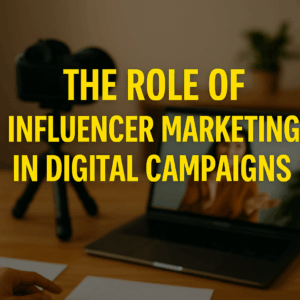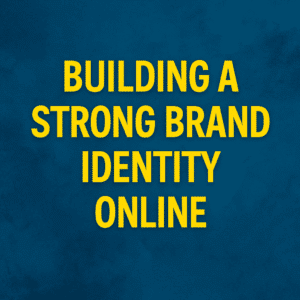What do you mean by Being branded?
It refers to creating a unique name, design, symbol, or other feature that identifies and differentiates a product, service, or company from others in the marketplace. Being branded aims to establish a solid and recognizable image or identity that resonates with consumers and helps build trust and loyalty over time. Effective Being branded can also help a company establish its reputation, increase its visibility, and differentiate itself from competitors.
What is branding in marketing?
In marketing, brands refer to creating and managing a unique image or identity representing a company, product, or service. Brands involve creating a name, logo, design, and other visual elements that differentiate the brand from competitors and help establish a robust and positive association with consumers.
Influential brands can help a company build brand equity, the value a brand adds to a product or service beyond its functional benefits. Brand equity can increase customer loyalty, higher perceived value, and the ability to charge a premium price for products or services.
Brands are an essential marketing component, as it helps companies establish a unique identity that resonates with consumers and sets them apart from competitors. It also helps to create a consistent message across all marketing channels, including advertising, social media, and other forms of communication. Simply it is one of the essential keys to your business’s growth!
What are branding and its importance for a business's growth?
Brands are the process of creating a unique identity, image, and perception of a product, service, or company in the mind of consumers. It represents a company’s reputation, values, and mission and helps differentiate a brand from its competitors.
A brand is essential for businesses for several reasons:
Differentiation: In a crowded marketplace, a brand helps to differentiate a product or service from its competitors. A strong brand can stand out from the competition and attract more customers.
Recognition: Brands help consumers to identify a product or service quickly. A memorable logo, color scheme, or tagline can help consumers to recall a brand soon.
Trust: Brands with a positive reputation and a strong identity are more likely to be trusted by consumers. A brand consistently delivering on its promises can build loyalty and trust over time.
Loyalty: A strong brand can create a sense of loyalty among customers, which can lead to repeat business and advocacy. Loyal customers are likelier to refer their friends and family to a brand.
Premium Pricing: A strong brand can command a higher price for its products or services. Consumers often pay more for products or services from a brand they trust.
In summary, brands are essential because it helps businesses to differentiate themselves from their competitors, create trust and loyalty among customers, and command a premium price for their products or services.

What are the five types of branding?
Businesses can use several strategies to create a unique identity and differentiate themselves from their competitors. Here are five types of brands:
The product involves creating a brand name, logo, and identity for a product or product line. Product is proper when a company has a range of products that target different audiences.
Corporate involves creating a brand identity for the entire company rather than just a specific product. Corporate is helpful for larger companies with multiple product lines or divisions.
A service brand involves creating a brand identity for a service-based business, such as a consultancy or a law firm. Service brand is proper when the quality of the service is a critical factor in the customer’s decision-making process.
Personal brands: This involves creating a brand identity for an individual, such as an author, entrepreneur, or influencer. Unique brands are helpful for individuals who want to establish themselves as experts in their field.
Cultural brands involves creating a brand identity that resonates with a particular culture or community. Cultural brands are proper when a company wants to appeal to a specific demographic or target market.
These are just a few examples of the different types of brands that businesses can use. The kind of brand strategy that a company chooses will depend on its goals, target audience, and the products or services they offer.
What is the difference between marketing and branding?
Marketing and brands are closely related concepts, but they are different. Here’s a brief explanation of the difference between marketing and brands:
Marketing is promoting, selling, and distributing a product or service to potential customers. It involves identifying customer needs, creating products or services that meet them, and developing marketing campaigns persuading customers to buy. Marketing focuses on tactics and measurable results, such as lead generation, conversion rates, and return on investment.
Brands, on the other hand, is the process of creating a unique identity and perception of a product, service, or company in the mind of customers. It involves creating a name, logo, design, and other visual elements that differentiate the brand from competitors and help establish a robust and positive association with customers. Brands focus on creating long-term customer relationships based on trust, loyalty, and emotional connection.
In summary, marketing is a tactical approach focusing on driving short-term results, while brands is a strategic approach focusing on creating long-term customer relationships. While marketing and brands are closely related, they serve different purposes and require other skills and expertise to be successful.
What are the benefits of branding?
Brands offers several benefits to businesses, including:
Differentiation: A strong brand can help a company stand out in a crowded marketplace. It helps differentiate a product or service from competitors and makes it easier for customers to recognize and remember the brand.
Credibility: A well-established brand can give a business credibility in customers’ eyes. It creates an impression of stability, reliability, and trustworthiness, which can be a competitive advantage.
Customer loyalty: Brands with a positive reputation and strong identity are more likely to build customer loyalty. Customers who have a solid emotional connection with a brand are more likely to remain loyal and purchase from the brand repeatedly.
Consistency: A strong brand helps maintain consistency across all customer touchpoints. This includes advertising, social media, packaging, and other forms of communication. Character is vital as it helps build trust and reinforces the brand’s identity.
Price premium: A strong brand can command a higher price for its products or services. Customers often pay more for products or services from a brand they trust.
Expansion opportunities: A strong brand can facilitate expansion opportunities for a business. It can make it easier to enter new markets, launch new products or services, and form strategic partnerships.
In summary, Being branded can give businesses a competitive advantage by helping to differentiate their products or services, build customer loyalty, maintain consistency, command a price premium, and facilitate expansion opportunities.
What problems does branding solve?
It can help businesses solve a range of problems, including:
Differentiation: One of the biggest problems businesses face is standing out in a crowded marketplace. It allows companies to differentiate themselves from their competitors and attract more customers.
Trust: Building customer trust can be challenging, especially for new or lesser-known businesses. It can help establish a positive reputation and create a sense of confidence with customers.
Loyalty: Creating a sense of loyalty among customers can be difficult, but it is essential for long-term success. It can help build customer loyalty by creating a solid emotional connection.
Recognition: Customers are bombarded with marketing messages daily, so businesses must create an easily recognizable brand. Brands help companies to create a memorable brand identity that customers can quickly identify and recall.
Price competition: In a crowded marketplace, businesses can compete on price, which can be a race to the bottom. Being branded can help companies to command a higher price for their products or services by creating a perception of value and quality.
Expansion: As businesses grow and expand into new markets, it can take time to maintain consistency across all customer touchpoints. Being branded can help maintain consistency and facilitate expansion opportunities.
Being branded can help businesses solve various problems, including differentiation, trust-building, customer loyalty, recognition, price competition, and expansion challenges.
In conclusion, Being branded is a crucial aspect of marketing that involves creating a unique identity and perception of a product, service, or company in the mind of customers. It helps businesses grow and stand out in a crowded marketplace, build customer loyalty, establish credibility, maintain consistency, command a price premium, and facilitate expansion opportunities. While Being branded and marketing are closely related, they serve different purposes and require other skills and expertise to be successful. By understanding the benefits of Being branded and the problems it can solve, businesses can create a strong brand that resonates with customers and helps drive long-term success and traffic in search engines.











